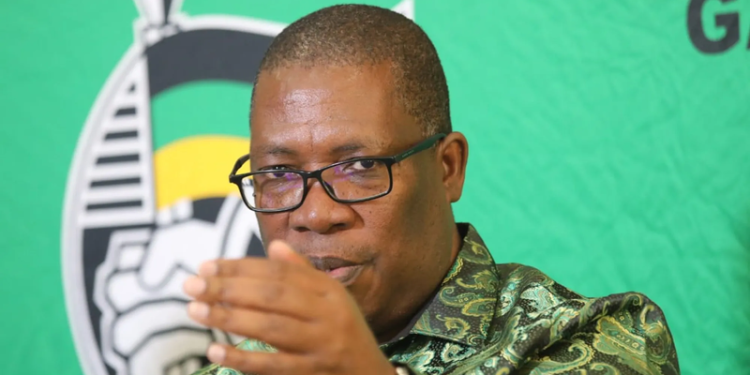In a calculated move to shape the African National Congress’s (ANC) leadership trajectory, Gauteng Premier Panyaza Lesufi is aligning his political future with the ambitions of ANC Deputy President Paul Mashatile. Insiders suggest Lesufi is building a strategic campaign to back Mashatile’s bid for ANC presidency, while positioning himself as a potential deputy president.
Lesufi’s recent moves signal a departure from previous alliances within the party, as he courts key stakeholders to bolster his faction. His efforts are centered on rallying support from traditional ANC allies, including the South African Communist Party (SACP) and the Congress of South African Trade Unions (COSATU). The alignment with these left-wing allies is viewed as a direct challenge to rival factions within the ANC, particularly those supporting other presidential hopefuls.
While public discourse has linked Lesufi’s actions to concerns over a potential Grand National Unity (GNU) government, sources close to the Premier reveal his focus is squarely on the ANC’s upcoming national conference and leadership succession. By aligning himself with Mashatile, Lesufi seeks to secure his influence within the party’s future power structure and ensure favorable outcomes for his faction.
Political analyst Thando Mkhize notes, “Lesufi’s calculated approach reflects his deep understanding of the ANC’s internal dynamics. His ability to consolidate power within key provinces like Gauteng gives him a significant advantage in the race for leadership influence.”
With the ANC’s leadership contest heating up, Lesufi’s moves have added a new layer of complexity to the race. The Mashatile-Lesufi alliance is expected to face resistance from rival factions, particularly those backing other prominent leaders. The ANC’s internal battle lines are sharpening as the national conference approaches, with each faction vying to secure critical support from provincial structures and alliance partners.
Lesufi’s maneuvering reflects the broader shifts within the ANC as it prepares for a critical period in its history. The outcomes of the leadership contest will have far-reaching implications for the party’s ability to address internal divisions, restore public confidence, and maintain its dominance in South African politics.
The coming months will test the strength of Lesufi’s strategy, as he and Mashatile work to build momentum within the party. Their ability to consolidate support and counter opposition will be key to shaping the ANC’s leadership and policy direction in the years ahead.






















